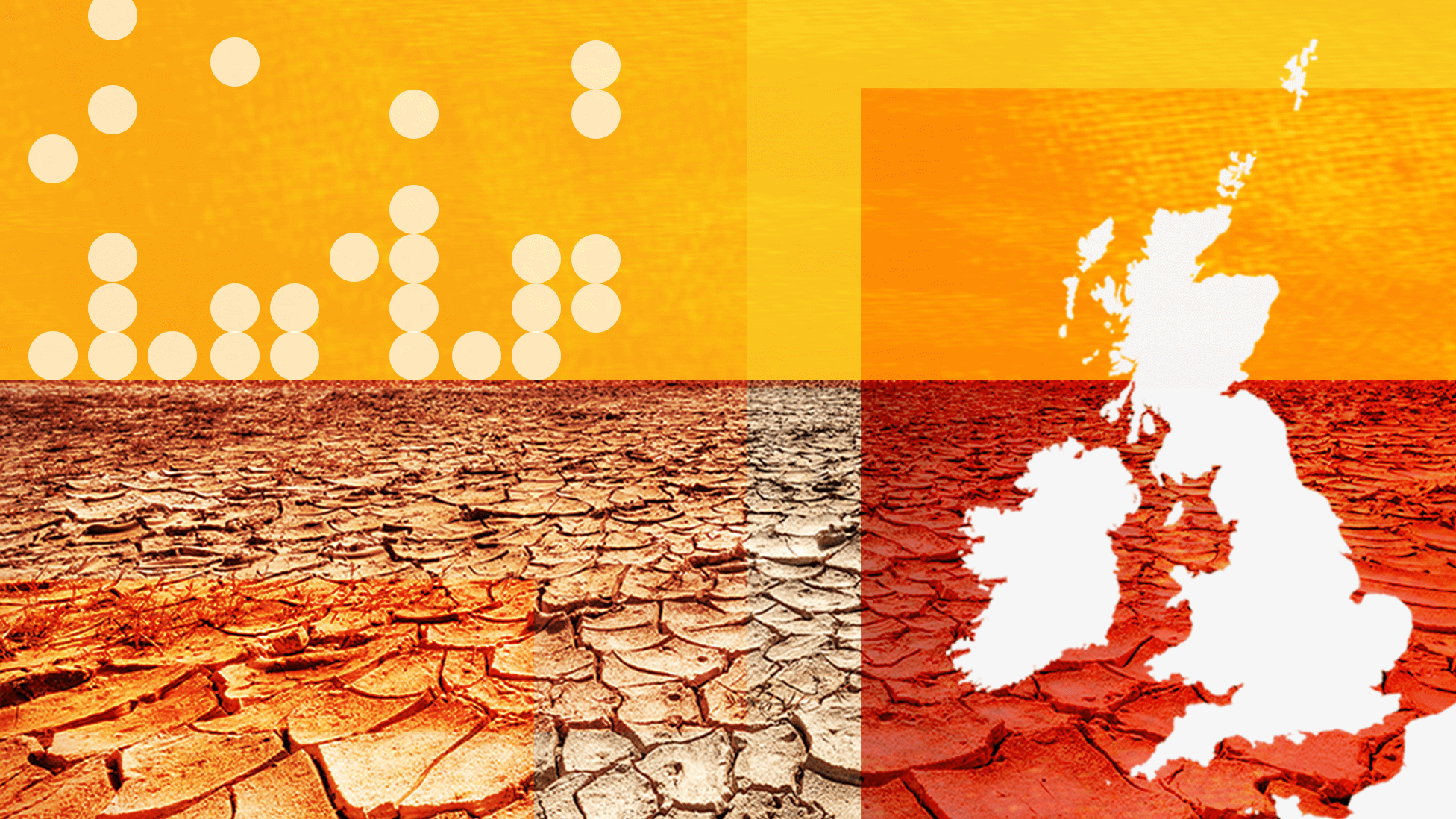ARTICLE AD BOX

A summer of broken records
By Nassos Stylianou, Becky Dale, Erwan Rivault, Jana Tauschinski
BBC Data Journalism Team
Two months after the summer heatwave, new data underlines the huge impact climate change is having on the UK.
More than half of the UK's oldest active weather stations recorded their hottest day ever in 2022, according to Met Office data.
New all-time highs were set at 56 of the 109 longest standing stations during the July heatwave.
One west Yorkshire village broke its previous record by a whopping 6.3C.
Scientists at the Met Office who carried out the analysis described this summer's extreme temperatures as a "real indication of how our climate is changing".
Temperatures passed 40C (104F) for the first time, something "virtually impossible" without human-induced climate change, according to the Met Office.
The data includes measurements from active weather stations in the UK that had at least 50 years of observations.
Records are typically broken by narrow margins, however, the long-functioning stations that broke their previous records this summer did so by more than 2C on average.
The largest gaps between records can be seen in the chart below.
The measurement was a full 1.6C higher than the previous maximum temperature of 38.7C set at Cambridge Botanical Gardens in summer 2019.
Among the 109 stations with long reporting histories, 14 other stations surpassed the 2019 record, although this does not include Coningsby as it does not have at least 50 years of data.
"What was really notable about this heatwave was the northerly extent of extreme temperatures, and by how much previous records were broken," according to Dr Mark McCarthy, head of the Met Office National Climate Information Centre.
The largest increase was at Bramham in West Yorkshire, which smashed its previous high of 33.5C by more than 6C.
Other stations in parts of Yorkshire, the North East and the North West also broke their all-time records by huge margins.
Kielder Castle in Northumberland surpassed its previous high set 40 years ago by more than 5C, while Whitby in Yorkshire beat its standing record by 4.8C.
New records at measurement stations in Sheffield, Durham, and Bradford were around 4C higher.
While the highest temperatures were seen in parts of England, the summer heatwave saw new national records established in England, Scotland and Wales.
These were set at stations with less than 50 years of data and are not included in this analysis, however the extreme heat this summer shattered multiple records related to specific stations across all four nations, some of which had stood for decades.
Only one in five of the longest-standing weather stations in the UK has a temperature record that was set before 2000.
The remaining 80% were all set in the past two decades.
Leuchars station in Fife was the northernmost of the long-standing stations to set a record in 2022. Its previous high set in 1990 was beaten by 0.5C.
Gogerddan, near Aberystwyth, was the first location in Wales to break the previous national record of 35.2C that had stood for more than 30 years.
Armagh station in Northern Ireland broke its record by a relatively small 0.2C, but that record had dated back 146 years - the longest anywhere in the UK.
Climate change is making heatwaves in the UK more likely and more extreme.
Since 2000, the hottest day of the year has surpassed 35C seven times. This only happened on five occasions in the 90 years prior.
And the UK's record temperatures have been broken more regularly in recent years.
While the 1911 record of 36.7C held for 79 years, subsequent records stood for less than two decades. The 2022 heatwave broke a record that had lasted only three years.
"The first recording of over of 40C in the UK was a landmark moment and a real indication of how our climate is changing," Dr McCarthy told the BBC.
"The impacts of this kind of heat became evident in parts of the UK with transport disruption, wildfires and health implications affecting the population," he added.
The UK was not the only country in Europe to see temperature records shattered these past few months.
A long-running drought, likely Europe's worst in 500 years, and series of extreme heatwaves made summer 2022 the continent's hottest on record, according to the Copernicus Climate Change Service.
Temperatures in Portugal hit 47C in July, the highest ever recorded that month, while in France 64 different areas experienced record highs.
Deadly wildfires in France, Portugal, Spain and Greece forced thousands of people to evacuate their homes.
On average, the summer was 0.4C warmer than the previous record, only set last year.

 2 years ago
43
2 years ago
43








 English (US) ·
English (US) ·